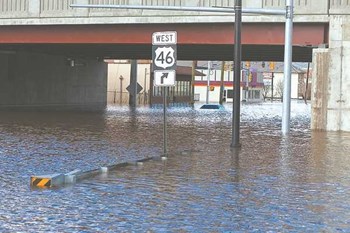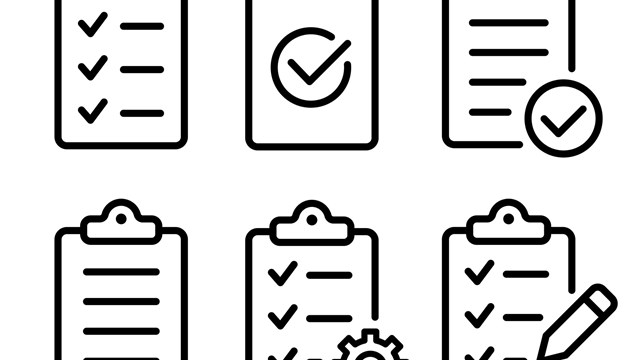
Tsunamis, earthquakes, tornadoes—these are just a few of the devastating disasters that have made headlines already in 2011 and created emergency situations that many never thought possible.
As the past year’s calamitous snowstorms, earthquakes, and even dreaded bedbug infestations have demonstrated, sometimes you just can’t plan for everything, and that’s especially true when you are living in a co-op or condo.
Any financially solvent co-op or condo association has both an operating budget to cover day-to-day expenses associated with running the building and a reserve fund that’s in place to pay for larger repairs and capital improvement projects. But what would happen if something devastating were to happen?
Smart boards will prepare and plan financially for a worst-case scenario, say the pros. Building some ‘wiggle room’ into a building’s budget can help fill the gaps between operating and capital expenses, and can spare residents from huge assessments and/or maintenance increases.
“Capital projects are typically defined as replacement projects as opposed to a maintenance project,” says William J Pyznar, PE, a principal with The Falcon Group, an engineering firm headquartered in Bridgewater. “Capital [replacement] projects are typically funding via reserves and maintenance projects are typically funded via operating funds.”
According to Barry P. Korn, managing director with Barrett Capital Corporation in New York City, “Reserve funds should be allocated between operating reserves and capital maintenance reserves. Generally speaking, a conservative approach to reserves would be to maintain a) cash operating reserves in an amount equal to two to three months of the building’s monthly maintenance or common charges and b) capital maintenance reserves to go toward emergency and/or future major capital maintenance items in an amount to be determined based on the building’s unique situation and needs.” (For how the Federal Housing Administration's new lending guidelines fit into this formula, see the related article in this month's New Jersey Cooperator. - Ed.)
The What-If Factor
While it may be true that devastating floods or tornadoes aren’t usually things that New Jerseyans need to worry about, Mother Nature does have an unusual sense of humor sometimes, and associations need to prepare for hypothetical emergencies just in case.
“Never say never,” says Daniel Rush of FWH Associates PA, an engineering, architectural, landscaping and environmental consulting firm in Toms River. “Associations must have adequate insurance for certain emergency situations. Reserves are intended for the replacement of items that have reasonably predictable useful lives and replacement costs. Properly funded reserves are able to absorb some unexpected capital expenses, but not catastrophic emergencies. Even with adequate insurance and reserves, some events like the snowstorms from this past winter can create difficult financial situations for the boards and residents.
Depending upon the severity of the catastrophe, if budgeting is being done properly and insurance coverage is adequate, the building should have enough reserves to take up any slack. The alternative for paying for damages from non-covered insurance events is through special assessments, which are never popular with residents.
Unexpected Assessments
In some extreme cases, a building may suffer damage and be forced to level a special assessment on residents. Considering the economic climate we live in today, residents may not always have the funds available to pay these. But, just like taxes, the assessments must be paid.
“Whether a condominium, HOA, or co-op, there is ultimately only one source of funding to pay for needed repairs and replacements,” says Russ Fernandes, a principal at Becht Engineering in Liberty Corner, “and that source is the individual homeowners. Relying on special assessments places the expense on current homeowners, whereas had the items been funded through a reserve fund, the amount would have been allocated over all of the owners that actually enjoyed the use and benefit of whatever component requires the repair/replacement.”
Generally, the bylaws and/or governing documents of the co-op/condo would provide an answer to how and what the building or association can do. Very often however, financial criteria submitted in the application process is not adequately interpreted. In a co-op situation, managers can disseminate the purchase application to the board so that board members have everything they need to make an educated decision before the interview of a prospective shareholder occurs. In a condo, however, financial worthiness is a consideration but the board has less of a say about any actual purchaser of a particular unit.
“If unit owners cannot meet their obligations to the association, then the board has to work with their attorney and decide how they pursue the delinquencies,” says Fernandes. “Needed projects that cannot be put off may require that the association obtain outside financing to cover any shortfalls.”
Some homeowners’ policies have special assessment coverage up to a certain amount that may help in this situation. “Some associations have the funds or means to set up a payment plan,” he adds. “If owners cannot pay, there is often the potential to lien the unit.”
Withholding payment of a special assessment could be dangerous for an owner, since a board may have the right to seize the owner’s unit if he fails to pay the fee.
Insurance Issues
Insurance does not and cannot cover everything. For those perils that cause devastating “insurable” losses (classified as low frequency/probability and high severity), it’s necessary to make sure that your insurance coverage’s have appropriate limits and broad coverage terms.
Emergencies aren't always as dramatic as a fire or flood, however. “The most common emergency conditions that we encounter that are not covered by the community’s insurance is water damage from long-term leaks,” says Steven Morris of Morris Engineering, LLC in Somerville.
“Water leaks, either from plumbing within the building or from outside through the roof, walls or foundations can cause severe damage to a building and its contents. That includes deterioration of the structure, damage to firewalls, or mold conditions inside units. Often these leaks go undetected or unabated for extended periods of time, and they are typically excluded from insurance coverage. That puts the cost of repairs and remediation [on] the members of the co-op or condominium association, which can be burdensome.”
Some pros suggest that a building’s overall annual insurance (not including workers compensation and disability insurance) should be 3.5 to 4 percent of the total annual collected maintenance collected by a building, and that it should be looked at as an asset rather than an expense. This shift in viewpoint allows boards to break out of any penny-pinching mode and look for quality products that provide better coverage terms, rather than cheap coverage that leaves their community vulnerable to damages that may cost far more down the road. The cliché “you get what you pay for” is apt—and certainly more palatable than finding out after the fact that your insurance is inadequate or non-existent.
Under My Umbrella
Emergency situations are just that and the worst time to learn about your insurance coverage is when a loss is incurred. Very often, people assume that their insurance coverage will suffice and the umbrella coverage will cover any damages that aren’t covered by the first policy. This can be a very costly assumption.
“For instance, if a tornado causes damage, one would think that the storm itself would be a covered loss. However, wind damage is very often specifically excluded and these damages can be substantial,” says Alex Kuffel of New York-based Pride Property Management Corp. “Less obvious exclusions are ones that are deliberate or criminal. If a building is destroyed through the criminal act of arson, there would be no coverage for the loss.”
It’s up to the property manager to review each policy to ensure that the board is aware of any potential exposure.
Any direct property loss sustained directly to the building (considered first party losses) are not covered by an umbrella policy.
Umbrella policies sit over the general liability policy and for co-op/condos and often sit over the D&O policy as well. Depending on the terms and conditions the umbrella policy may not have overage for, or lower sub-limits of coverage for employment practice related claims, construction (structural) related work, mold coverage, or lead coverage.
The facts of any case determine if there is coverage on the primary general liability policy so if the primary GL coverage does not give coverage, the umbrella will not follow with coverage generally. Furthermore, the umbrella policy may have superseding exclusions on certain coverages.
Final Thoughts
It is impossible to eliminate risk, so any actions that are taken to mitigate and transfer risk to the party most responsible for causing the damage or loss are concentrate measures that can be taken to help protect a building.
“There is no way for a board to budget for every hypothetical emergency,” says Fernandes. “The best approach is first to have a reserve study done by a competent reserve specialist which will identify items to be included in the reserve fund. Many 'hypothetical emergencies' can be avoided by carefully inspecting and evaluating a property during the preparation of the reserve study. Most future repairs and replacements can be identified and planned for, reducing the likelihood of unanticipated occurrences.”
In the end, the fact is that sometimes, a board may have no choice but to raise maintenance or level an assessment on residents. It's never a popular decision to make, and most boards would prefer not to—but with intelligent, prudent planning and a realistic outlook on your community's finances, your administrative team may be able to come up with workable alternatives to assessments and hefty increases. “It sounds counterintuitive,” says Morris, “but now is the time to increase your reserve funding. A small increase in the monthly reserve fund contribution will help to get the reserve funds closer to proper funding over an extended period of time. As discussed above, a well funded reserve account can be an association’s best asset in an emergency.”
“Boards should establish goals for maintaining operating and capital maintenance reserves,” Korn agrees. “While it may not be practicable, for example, to go from providing no money in the annual budget for a capital maintenance reserve fund to allocating 10 percent of the budget to the reserve fund, boards can establish the principal and work to achieve it over time. For example, by allocating an extra 2 percent increase in maintenance or common charges each year for the next 5 years, by the end of that time you will have achieved10 percent of your budget being allocated to a capital reserve fund.
The key is to have an adequate reserve fund that creates a stable and predictable funding plan throughout the life of the community,” says Rush. “Fairly distributing the required funding will ensure that a single group of residents will not pay more that their equitable share.”
Keith Loria is a freelance writer and a frequent contributor to The New Jersey Cooperator.






Leave a Comment